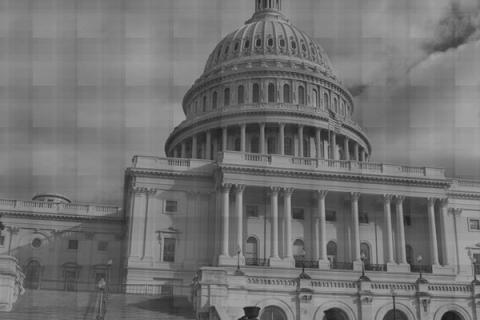A poll from Harvard's Institute of Politics (IOP) was released Tuesday. Findings from the national survey of over 3,000 Americans aged 18-29 suggest that partisan polarization has deepened amongst young voters over the last four years.
The partisan stretching of America can be seen in polarized opinions of President Obama. The gap between millennial Democrats and Republicans is at the highest point since polling began in 2009. 86 percent of Democrats approve of the job the president is doing, whereas only 10 percent of Republicans feel similarly, and independents were firmly in-between at 46 percent.
From IOP:
"While the top-line indicators of approval have not changed, a look below the surface reveals that 18- to 29- year olds have never been more divided when it comes to the opinion of this President. Since November 2009, we have tracked how members of each party rate President Obama’s job performance eight times, and the difference between the way that Democrats and Republicans view the President has never been more dramatic than in the last six months."
The poll found 37 percent of voters under 29 years old identified themselves as independents, matched by 37 percent calling themselves Democrats and 25 percent said they are Republicans.
Becoming More Cynical
Negative attitudes toward politics are up across the board when compared to 2010. A majority of young voters agreed that "elected officials are motivated by selfish reasons' and 'elected officials don't have the same priorities I have." Nearly half -- 48 percent -- believe politics has become "too partisan."
Whether or not this will keep independent-minded millennials from showing up to the polls in 2014 remains to be seen. Yet, it is likely that either major party will fail to capture any cross-partisan support given the hostile political climate in Washington.
Participation Still Low
Youth voter turnout has typically trailed the other key age demographics, but it seems to be rising. The 2012 election saw a slight bump in youth participation, up from 18 percent in 2008 to 19 percent, but still lagging behind the 30-50 crowd (37 percent) and even farther behind voters over 50 (44 percent).
Finding Consensus
There were a few issues that millennials agreed on regardless of partisan affiliation. Immigration reform, same-day voter registration, and gun control found broader support amongst millenial voters. A plurality of Republicans (32 percent), Democrats (56 percent), and Independents (41 percent) supported a pathway to citizenship for illegal immigrants.
Moreover, 60 percent were in favor of same day voter registration and nearly half (49 percent) favored stricter gun control regulations.
Figures show that even younger voters are not immune from the polarizing effects of hyper-partisanship.
"On issues ranging from their views of the President to immigration to gun control to the role government should play in improving our economy, both Democrats and Republicans are hardening their positions, while Independent-minded voters are tuning out."
The long-term impact of heightened partisanship in political discourse will likely shape millenials' perception well into the 2014 election season. It remains to be seen, however, if there will be any progress where common ground exists between Republicans, Democrats, and independents.

